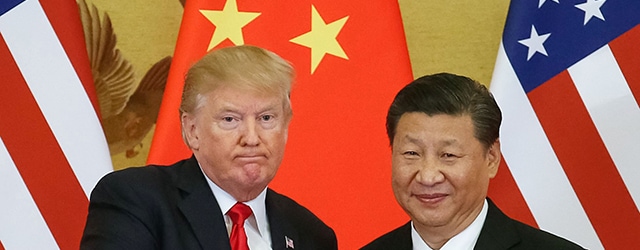US-China trade war isn't the only dimension of conflict between the two nations.

The 21 members of Asia-Pacific Economic Cooperation (APEC) failed for the first time in the organization’s history to publish a joint statement following the annual meeting of ministers in November. Friction between the United States and China, APEC’s two largest economies, undermined efforts to produce the joint statement, according to media reports.
On the first day of the weekend-long meeting, which took place in the South Pacific nation of Papua New Guinea (PNG), US Vice President Mike Pence said that the US “will not change course until China changes its ways.” Meanwhile, Chinese President Xi Jinping said that the US-China trade war “will produce no winners.”
Beyond their trade dispute, the two countries are competing for regional influence. Pence announced during the summit that the US would double its financing capacity in the Asia-Pacific region to $60 billion and partner with Australia and PNG to redevelop a naval base on Manus Island. The US also committed to join Australia, New Zealand and Japan to expand PNG’s electrical grid, which currently serves fewer than 25% of the country’s residents.
According to the Lowy Institute, a Sydney-based think tank, the US committed $1.36 billion to 401 projects in the South Pacific islands from 2011 through the end of 2017. China, during the same period, committed $5.7 billion to 203 projects. Much of China’s investment came in the form of loans, however, stoking fears internationally that China could take control of ports and other infrastructure in nations that are unable to repay their debts. In his remarks, Pence cautioned against accepting “foreign debt that could compromise your sovereignty.”
China’s foreign ministry responded to Pence’s warning by saying, “Not a single developing country has been mired in debt difficulties because of its cooperation with China.” At the start of the meeting, China postponed debt payments for five years for the nation of Tonga—which in return signed on to the Belt and Road.
“Tensions between the US and China will, in my opinion, increase,” says Gary Clyde Hufbauer, nonresident senior fellow at the Peterson Institute for International Economics. “It seems likely that China will significantly outspend the US through its Belt and Road Initiative, the [Asian Infrastructure Investment Bank] and export-credit financing vehicles.”
At press time, Xi and US President Trump were expected to discuss these issues during the G20 Summit in Buenos Aires from November 30 to December 1.



